
Did you know that one of the common foods in your kitchen can be an effective secret weapon against gout? Yes, you heard it right – it’s the onion, a staple ingredient in many of our meals. Surprisingly, it holds immense potential in the fight against gout. But you might be wondering, what exactly is gout, and how are gout and onions related?
Gout isn’t just inflammation; it’s a form of arthritis triggered by hyperuricemia, an elevated uric acid level in the blood, or, in other words, a condition where uric acid crystals accumulate around joints. This condition impacts millions of individuals across the globe. Gout is a painful form of arthritis, and it can be reduced by avoiding high-purine foods, regulating our diet, and regular exercise. Recently, people have started to believe in the connection between gout and onions. Also, a few research suggest that consuming onions, especially red onions, can help lower uric acid levels and, in turn, gout and potentially rheumatism. Let’s delve into the potential benefits of this everyday kitchen staple that you might overlook.
Gout And Onions: A Detailed Discussion!
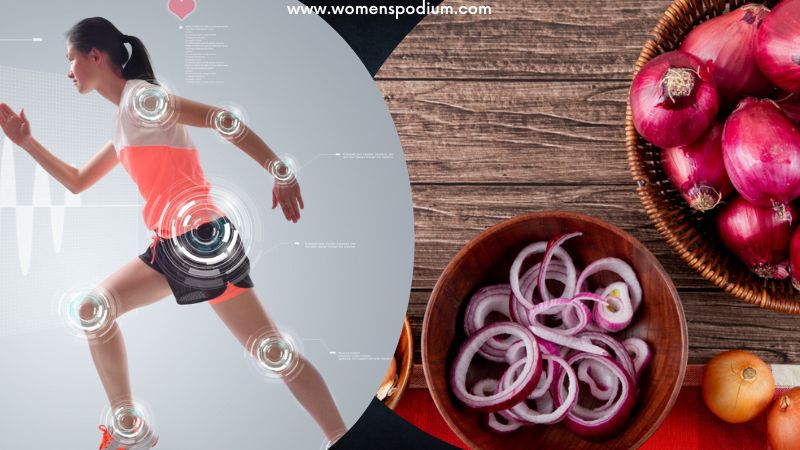
Are you curious about how onions contribute to better health? Let’s explore their remarkable benefits, discovering how they become a powerful ally in combating gout. From reducing inflammation to aiding digestion, onions offer a multitude of advantages.
What Is Gout And Its Management
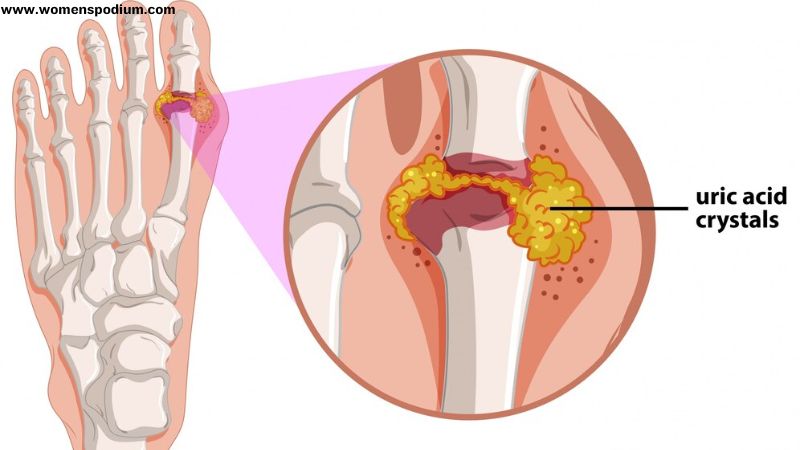
Gout implies a sudden, severe pain, specifically in the big toe, although it can affect other joints as well. This condition arises from high levels of uric acid in the blood, which leads to uric acid crystals formation in the joints. Gout is not an autoimmune disease but it is rather a painful condition of muscles and joints which involves inflammation, redness, and swelling of joints. To prevent gout, one must make lifestyle changes, including dietary adjustments, and certain medications.
Onion And Purine – An Interesting Fact!
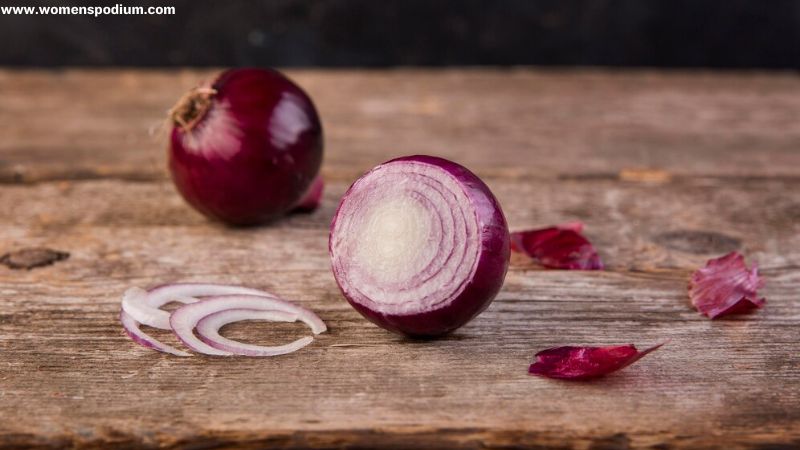
An interesting fact about gout and onions is that onions contain moderate levels of purines, which can cause small levels of uric acid in the body. While they have some risks, they also possess anti-inflammatory properties. This means that while onions contribute to symptoms of gout because of their purine content, they are certainly not as lethal as some foods high in uric acid. Onions help alleviate inflammation and pain associated with gout attacks. This means onions help you fight gout only when you take them in moderation.
How Onions Help Improve Your Health?
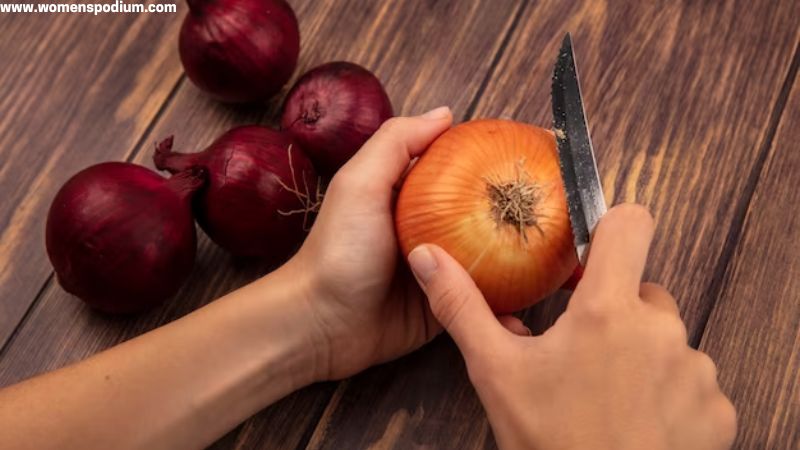
Beyond their culinary use, onions are packed with many health benefits. Rich in antioxidants, they strengthen our immune system and help combat various illnesses. As onions are also anti-inflammatory, they benefit those dealing with conditions like arthritis and gout.
Onions are also a good source of vitamins and minerals, including vitamin C, B6, potassium, manganese, and copper, essential for overall well-being. Studies have even suggested that the sulfur compounds in onions may have protective effects against certain cancers. Including onions in your diet regularly is a simple and significant step towards better health. Whether consumed raw in salads, cooked into dishes, or as a flavorful addition to soups and stews, there are countless ways to relish the benefits of this versatile vegetable.
Now, let’s figure out how onions help in treating gout. Onion’s natural properties work to reduce uric acid levels. You can proactively manage this condition by including onions in your diet, especially varieties like red onions, known for their potency. But before everything, first, we should know what gout is and how it gets severe.
What Is Gout? How It Gets Bad?

Gout is a metabolic disorder characterized by high uric acid levels in the body, causing urate crystals in joints and kidneys. Gout has no cure; the only way to control gout is to control uric acid production in the body. Uric acid is the end product of purine metabolism within the body. Purines are a natural substance and the most common compounds found in the body. It is a heterocyclic aromatic organic compound consisting of two rings, pyrimidine, and imidazole, and is water-soluble. There are two kinds of purines: endogenous and exogenous. Exogenous purines are absorbed by the body through the foods you eat, whereas endogenous purines are made directly by the body itself—uric acid is a byproduct that forms when purines are broken down in the digestive system.
Also Read: Some superfoods may be healthy, but you must avoid a few, which can worsen gout.
Why Onions?
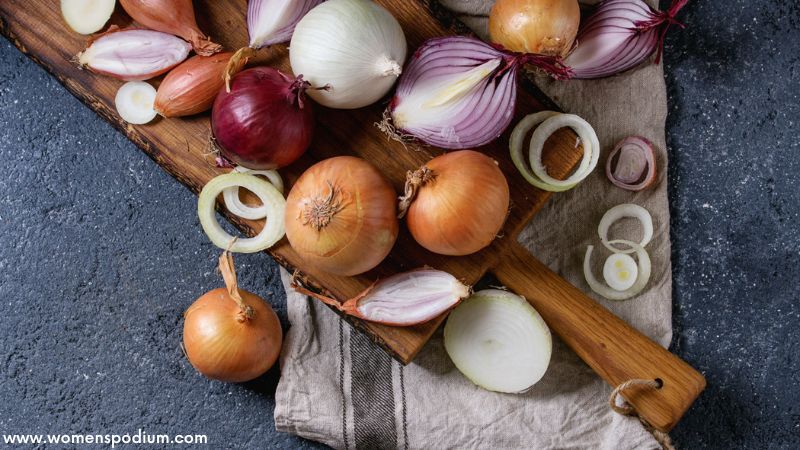
Onions, a mainstay in many dishes globally, is not just for adding flavor to your food. It’s a power-packed vegetable with various health benefits that can help alleviate gout symptoms, a form of arthritis that causes severe pain and swelling in your joints. Its unique properties have made it a popular home remedy for various health conditions for centuries. It works like an unlikely hero in the fight against gout. Packed with essential nutrients and potent anti-inflammatory properties, onions are more than just a kitchen staple—they are a formidable ally in your health journey.
What Properties Of Onions Help Treat Gout?

Onions are beneficial because they are rich in quercetin, a flavonoid with potent anti-inflammatory and antioxidant effects. This very component makes onions such a crucial ingredient for managing gout. However, when doctors advise gout patients to restrict purines, many of us might wonder whether onions are suitable for gout. Well, onions are low-purine foods (in 100 g, 3.5 oz of uric acid), so they are safe for gout. Let’s break down some of its properties:
1. Anti-inflammatory Properties
Gout is caused by a buildup of uric acid crystals in the joints, leading to inflammation and pain. Quercetin in onions helps reduce this inflammation.
2. Antioxidant effects
Free radicals can exacerbate gout by causing further damage to the joints. Quercetin neutralizes these harmful free radicals, mitigating their destructive impact.
3. Vitamins and minerals
They are rich in vitamins and minerals like potassium, magnesium, and copper, which reduce uric acid crystals accumulation at joints.
4. Alkaline-forming properties
Onions are also an alkaline-forming food that minimizes kidney stone chances when taken in moderation in a healthy diet. Thus, gout and onions are related proactively.
Which Onion Types Are Effective For Gout?
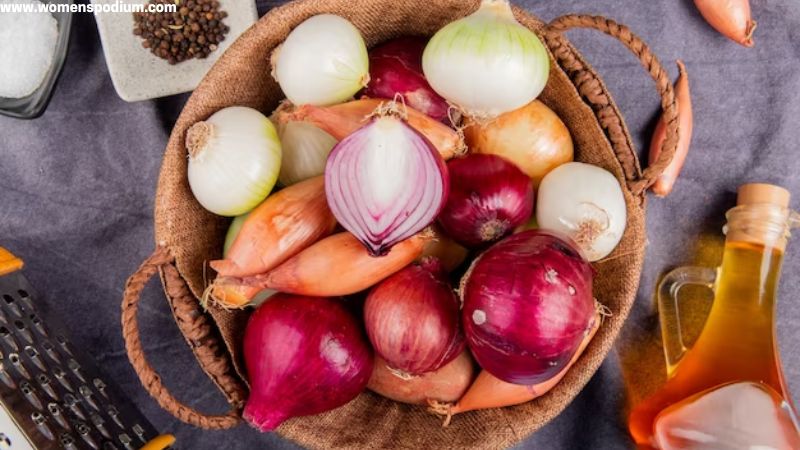
The onion is one of the most essential vegetables in the diet. More importantly, it is used in several ways, including as different salad dressings, in soups and sauces, and can also be consumed raw or fried; in a nutshell, we can say many foods or recipes are simply incomplete without onions.
Onions come in wide varieties, like spring onions, shallots, white onions, sweet onions, and many more. Although all types are beneficial, brown onions (red onions) contain the highest levels of quercetin, which reduces uric acid and has antioxidant and anti-inflammatory properties. They lower blood cholesterol levels and regulate hemoglobin levels. The main worry of arthritis patients is swelling, inflammation, and joint pain. Consumption of onions may help ease the arthritis pain and reduce swelling. Because of their various health benefits, onions should be part of a gout patient’s diet.
Including Onions in Your Diet
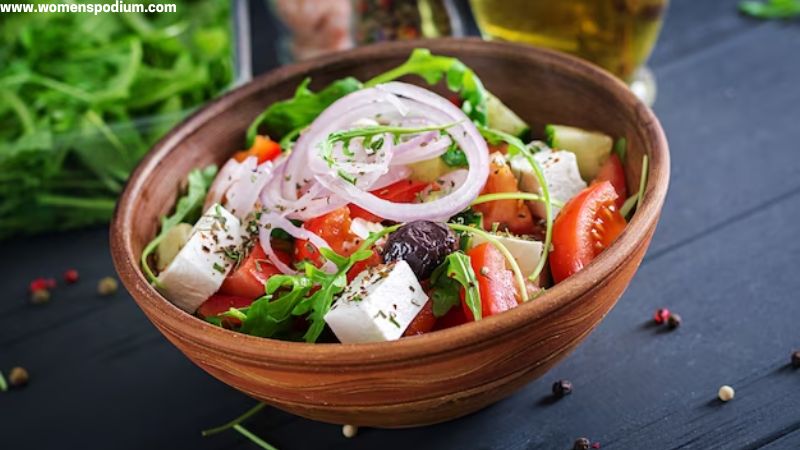
Knowing the benefits of onions is one thing, but how do we incorporate them into our daily meals? Here are a few suggestions:
- Try adding thinly sliced raw onions to your salads for an extra crunch.
- Grill or saute onions to bring out their sweetness and add them to stir-fries.
- Make a healing onion soup rich in quercetin.
Remember, while onions can be a powerful tool in managing gout, they are not a stand-alone solution. Maintaining a balanced, nutrient-rich diet and consulting with your healthcare provider for a comprehensive approach to managing gout is essential.
Alternative Foods in the Gout Combat
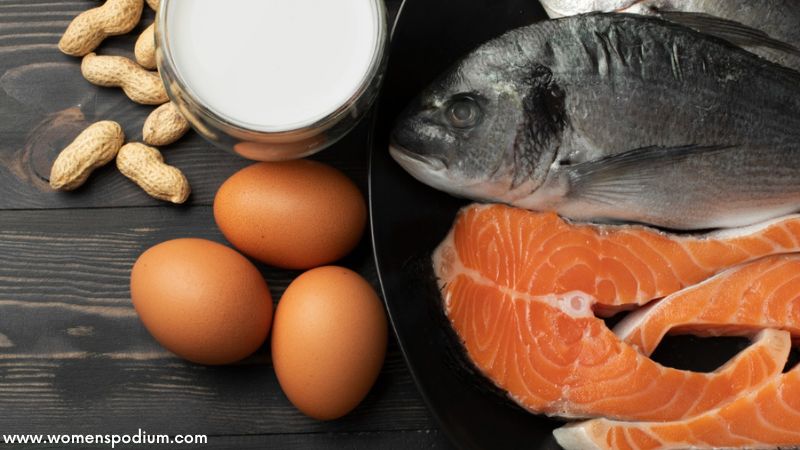
While our hero in this health saga— Onion, plays a starring role, let’s not forget about the supporting cast. Numerous other superfoods can lend a hand in managing gout.
Cherries: These ruby red gems are not only delicious but are also packed with anthocyanins, which have anti-inflammatory properties. Plus, cherries can help reduce uric acid levels—a leading cause of gout.
Citrus Fruits: Oranges, grapefruits, and lemons, oh my! These fruits are chock-full of vitamin C, which can lower uric acid levels.
Dairy Products: Low-fat dairy products like milk and yogurt can reduce the risk of gout by lowering uric acid levels in the body.
Foods To Avoid Gout

After the above read, you can say gout and onions are linked and good for health. But there are some foods that you must avoid as they trigger your gout conditions and uric acid and purine levels.
Seafood: Some seafish and shellfish, such as sardines, herring, mussels, codfish, trout, haddock, and anchovies, are enriched with purines.
Red Meat: Maybe meat is rich in protein, but bacon, veal, turkey, venison, and organ meat like liver are rich in purine.
Alcohol: Alcohol, especially beer, also raises uric acid levels. As per many physicians, alcohol should be avoided because it increases uric acid and inhibits the body’s ability to process and eliminate it.
Sugary Drinks: People who consume more sugary drinks are more prone to gout and related problems than those who avoid them.
Conclusion
Taking charge of your health is within your grasp, starting right in your kitchen. When it comes to managing gout, onion can be a powerful ally. With the right ingredients, including onions and other superfoods, you can make healthier recipes that can aid in dealing with gout conditions. However, do remember:
“Let food be thy medicine and medicine be thy food.” — Hippocrates
Now, we can say a positive correlation exists between gout and onions. It’s simply about consuming the right foods and avoiding the wrong ones. Combine onions and low-purine foods with regular exercise and consultation with your healthcare provider, and you’re well on your way to managing gout effectively.
Also Read: We sometimes unintentionally adopt unhealthy habits that may lead to certain diseases and conditions. So, avoid those things!






Beautifully written article with simple and precise details backed with proper research. Keep up the good work to writer.
An excellent article for Gout patients. Being a patient I can tell that this article has covered all the details.